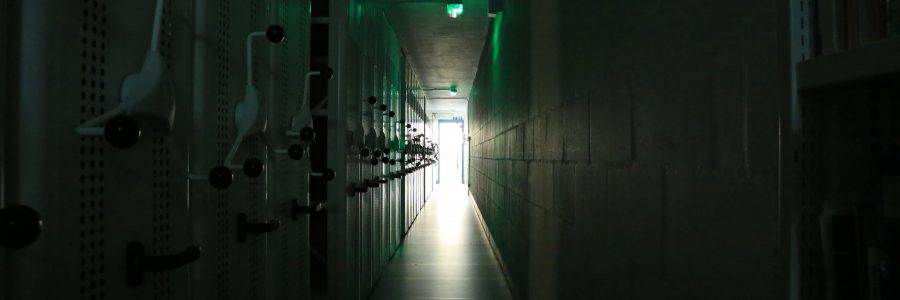
Transtemporal at the University Library
This guest post is by Sana Ginwalla, an Indian-Zambian photographer and curator, founder and director of Zambia Belonging – a counter-archive of photographs which explore identity, place, memory and meaning in a Zambian context. Zambia Belonging is housed under Everyday Lusaka – an art platform exploring a more considered visual representation of Zambia to shape a contemporary archive for future generations. In early 2023, Sana and co-fellow Kerstin Hacker of Anglia Ruskin University undertook a collaborative intervention with the holdings of the Royal Commonwealth Society collection relating to Zambia [formerly Northern Rhodesia] under a Cambridge Visual Culture fellowship.
Walking into the Royal Commonwealth Society (RCS) archive at Cambridge University Library is like entering a different dimension. One that transcends time and space, and the doors that lead you there are like portals luring deeper into space, but only if you have the magic key.
The RCS archive lives in the basement of the University Library in a sleepy corner on the way to the Official Publications Collection, which boasts mile-long corridors that extend to the end of the world, lighting up only if movement from a daring human is detected. The RCS collection has its own blue speckled linoleum floored corridor – separated by two securely locked doors.
As mere visitors to the library and its archive as part of the Cambridge Visual Culture Visiting Research Fellowship, my co-fellow Kerstin Hacker and I would meet our personal guardians of this galaxy (of the UL basement). They were the very few chosen ones who had access to the magic key(s) that opened all the portals necessary to reach our destination. Every day, entering the UL with our bare essentials (not excluding mental preparation) in a transparent bag, we repeated the same dimension-transcending rituals for two weeks, passing through what must have been at least 10 portals before our feet actually touched that blue lino floor of the RCS.
Either RCS curator Sally Kent or Jenni Skinner, librarian at the African Studies Centre would kindly steward us through the maze that is the upper floors of the impressive University Library. A blue carpeted wonder spotted with studious readers overlooking the courtyard through domineering windows. If you were lucky enough, the sun would shine on your study desk and maybe birds would chirp. Either way, the light of the library was charming. It would wash over hefty shelves of books from centuries before. As we embarked on our journey, their spines of gold embossed titles would glimmer, winking at us as though a transcendental secret was about to be revealed.
*
It was the never-ending rolling “stacks” of shelves in the basement that made me think of weight. The literal and metaphorical kind. I wondered, what would the mass of this collection be? How much of the earth’s weight is attributed to the books, objects, papers, boxes and memories that we store in archives and museums around the world? What if they all converged? How many copies and versions of one history would we discover? What would they say to each other if they met?
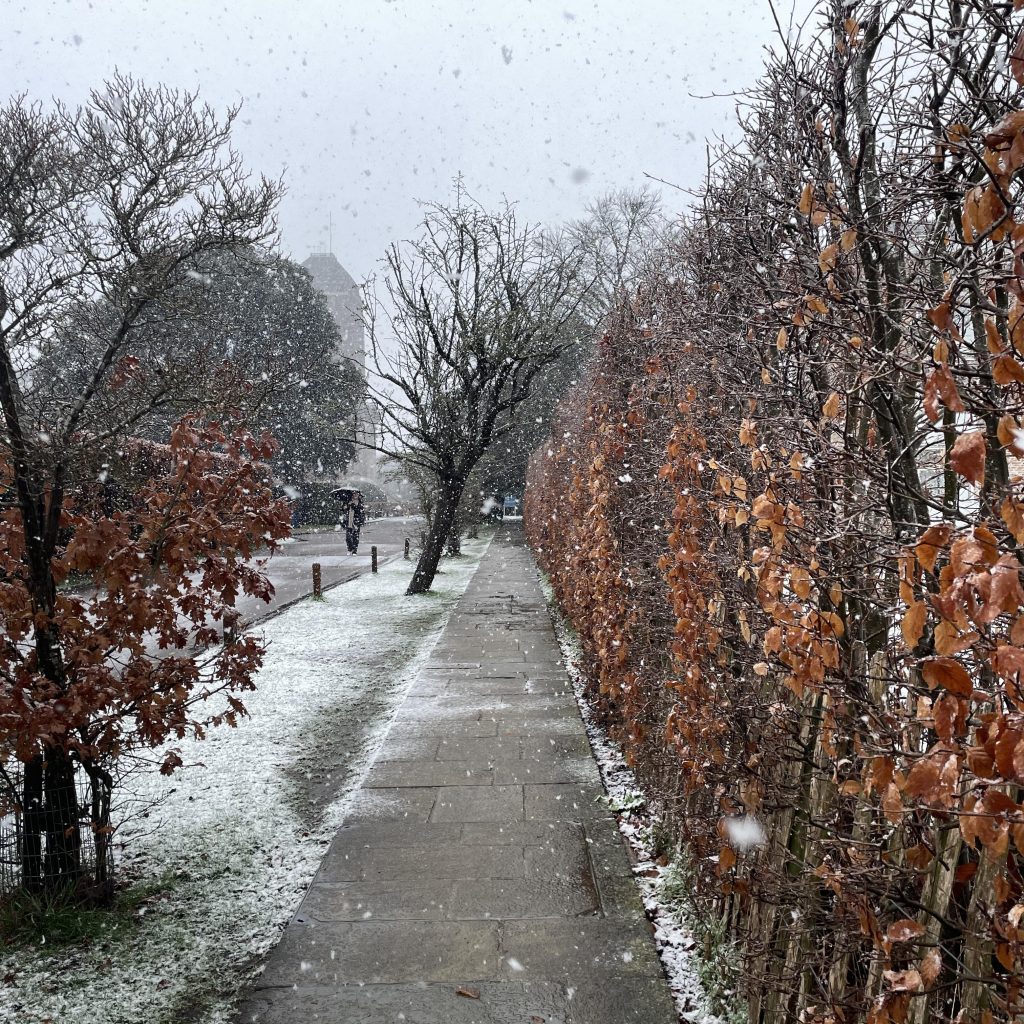
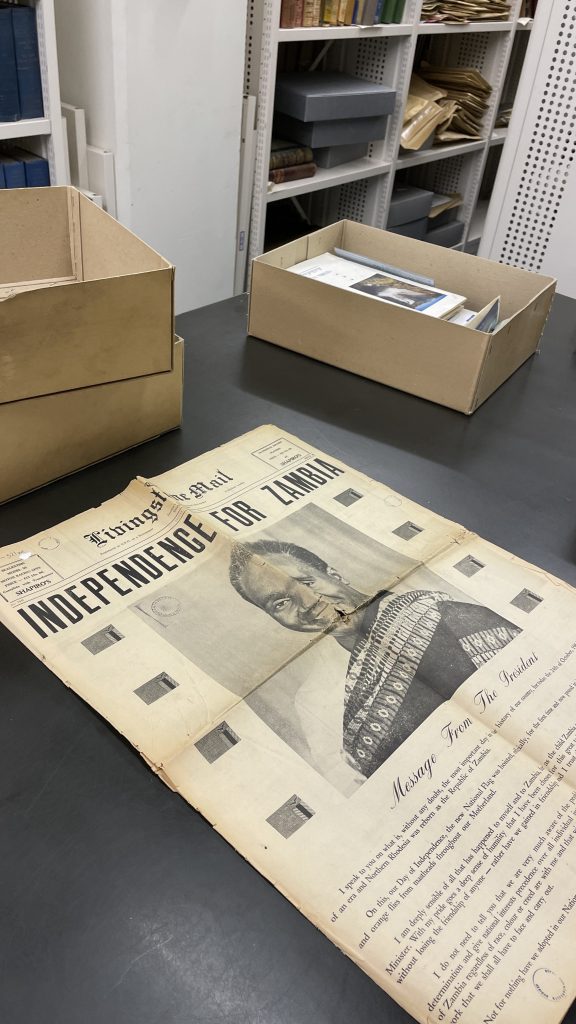
Then there was the kind of weight that sat on our shoulders, which often only settled at the end of the day. After leaving the windowless historic dimension of the basement – where tube lights staged as multiple flickering suns and the squeaky wheels of the library trolly were our birdsong – we would step out and witness the unpredictable cycles of weather that the outside world in the year 2023 had experienced that day. It was almost like leaving the cinema after an afternoon show about war and aliens, then walking into the blinding light of the day’s reality and normalcy.
In Cambridge, the outside world met us with wet ground and unexpected snow in the early months of spring. But after a few readjusting minutes as snowflakes melted in our hair – where the sun was the sun and the birds were the birds – we were met with the weight of time and the things we never knew about it. How its records can cause a tension in the nape of your neck as your head hangs over its insides. How its expanse can be traversed across and between a blue-lino floor and the base of your feet. How its dust can sit in the grooves of your fingerprints. How the passing of time escapes you in a windowless wonder. Time stops in the crevice of the books and suddenly you’re not sure what time it is – what century it is. Where did these stories come from and where are they going?
*
The litany-loop of how our bodies moved through these portals in order to access the RCS felt like a physical embodiment of what accessing institutional archives is like – a trope that our fellowship sought to address. As artists determined to produce a creative outcome in a method that would remedy the challenges of representation and memory in archives, we were in constant negotiation with protocols around copyright, reproducibility, and all the other bureaucratic measures put in place at the UL.
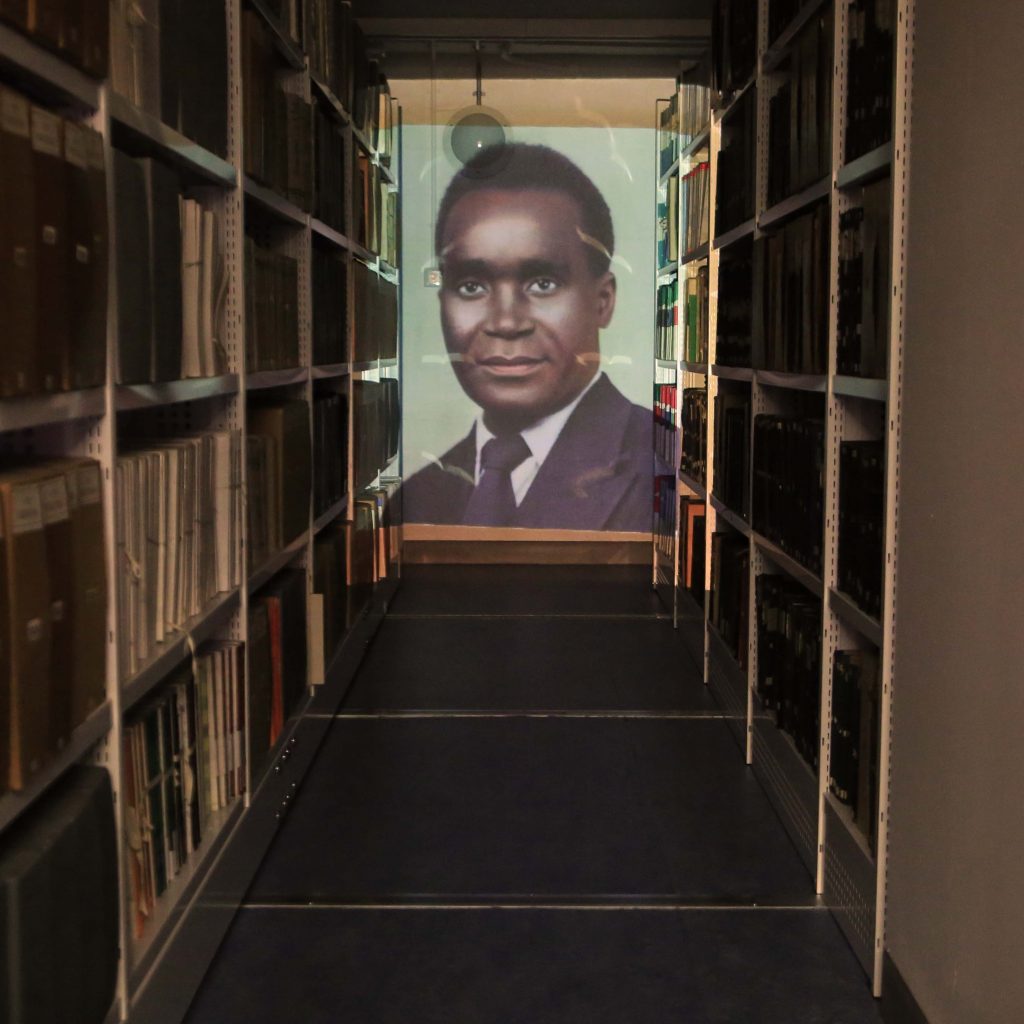
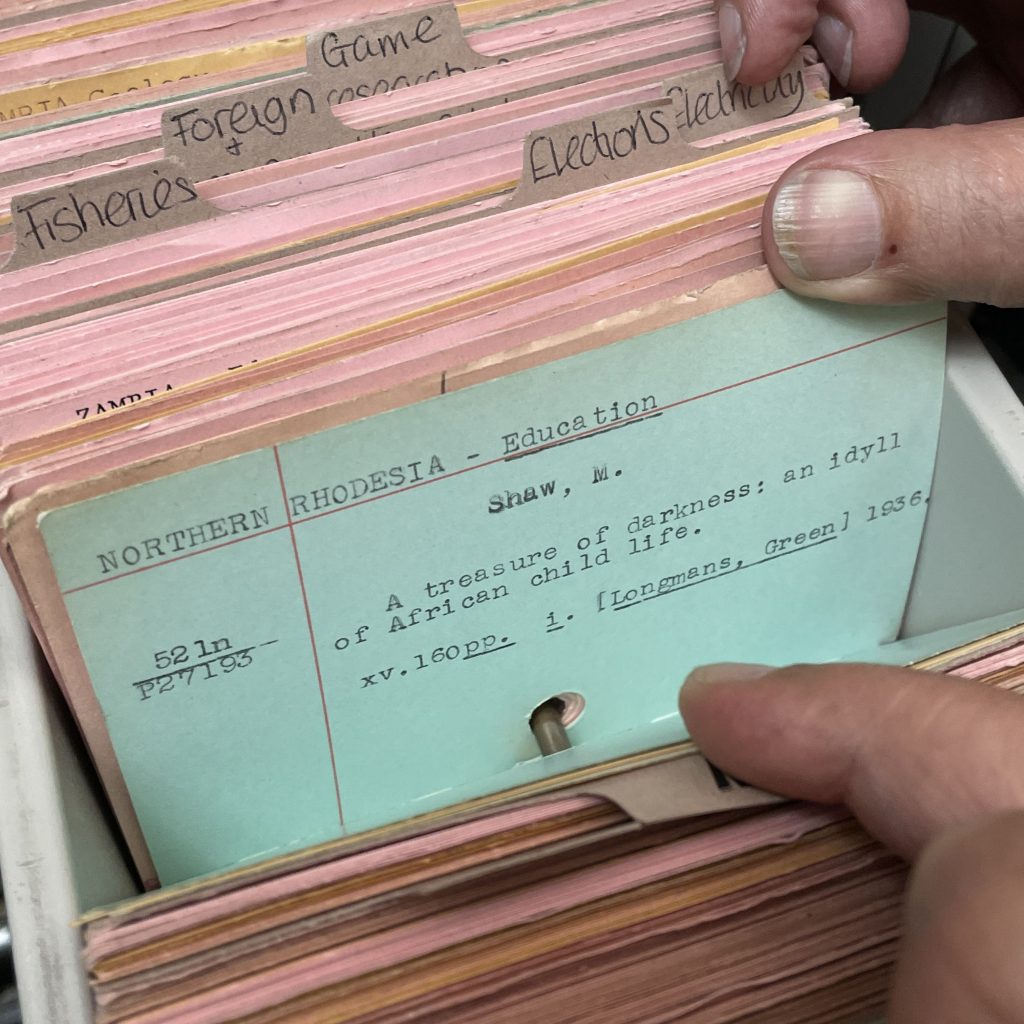
Our fellowship explored how visual material from Zambia in the RCS collection could meet, converse, oppose and creatively intervene with a counter-archive I founded in Lusaka called Zambia Belonging. The collection includes unclaimed material found in an attic of a photo-studio in Lusaka called Fine Art Studios. We entitled our fellowship “An Exhibition That Nobody Will See” due to the above protocols that limit its viewing. More importantly however, the fellowship was an exercise in discovering the extent to which institutional archives can reveal and conceal their “treasure(s) of darkness[1]” and experience glimmers of light in dimension-transcending journeys of their own.
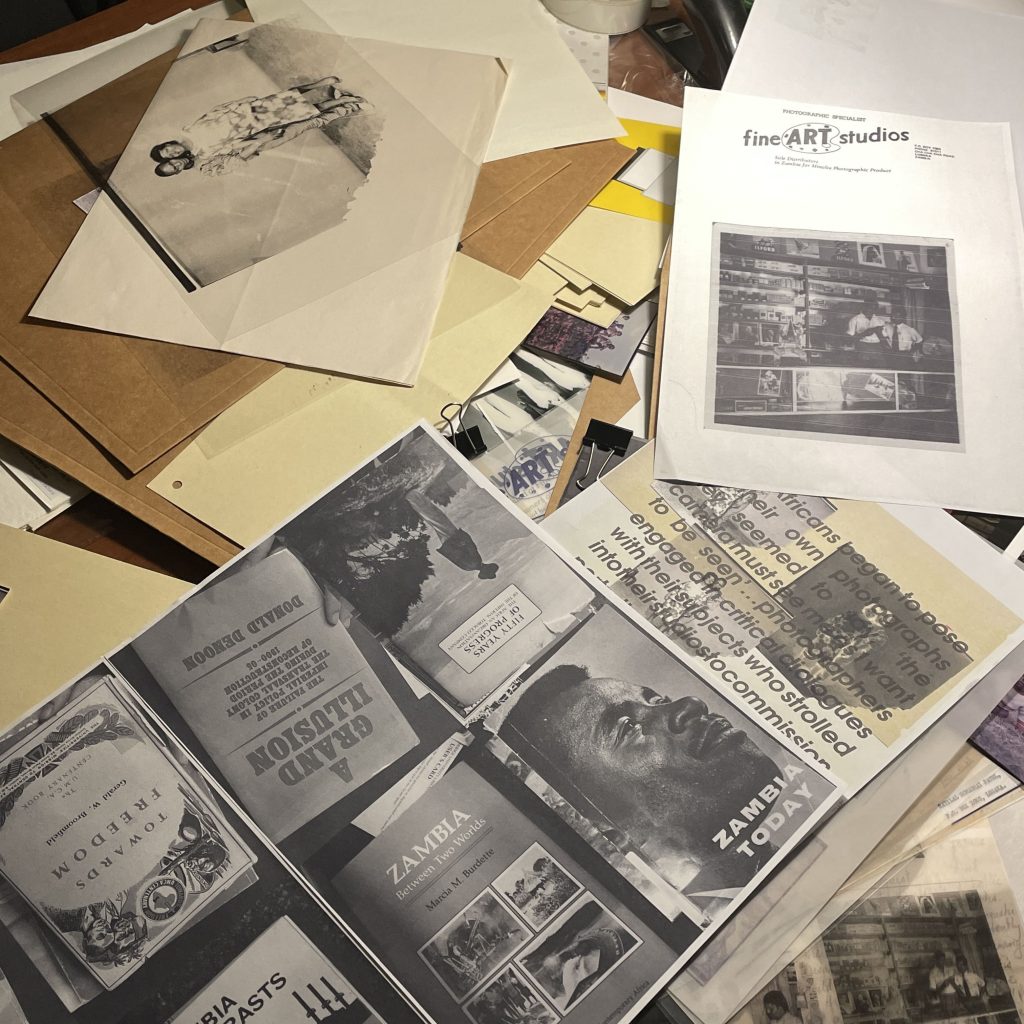
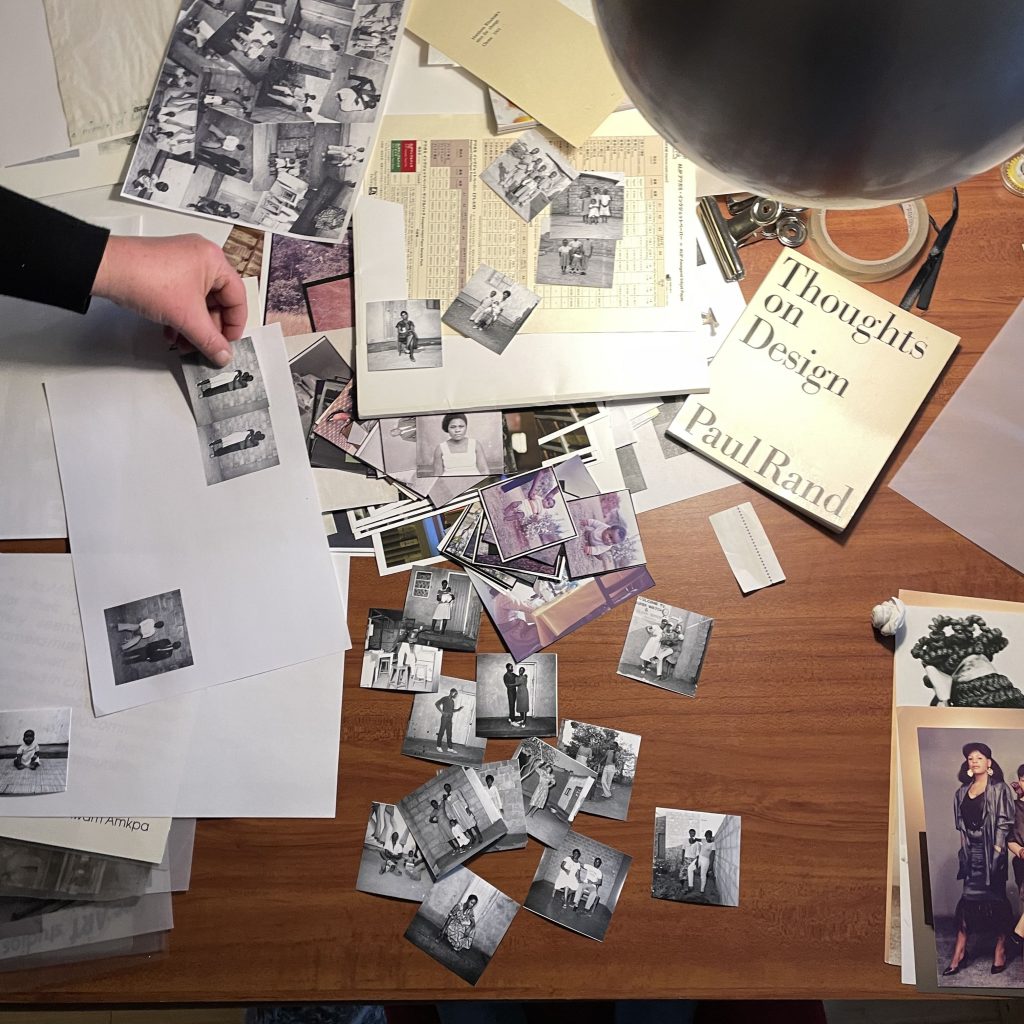
Working with images from the RCS collection and the Zambia Belonging collection
The Fine Art Studios collection lived in the darkness of an attic for over 30 years and has now found itself in the public realm since 2018. On the other hand, the RCS collection underwent its own movement from being stored in a public building to a now quasi-public realm (i.e.: accessible and pubic, yet confined to the realms of the UL basement). Thus, the two collections had to meet halfway in a galaxy of translucent light between basement and attic – an archival purgatory. We worked with phrases that sounded like poetry from card catalogues, book covers that looked like artwork, and brittle newspapers as old as Zambia’s democracy. This content from the RCS was layered, letter-pressed and printed over photographs from Zambia Belonging. The results found a home in an archival box donated from the RCS, and afforded it the readability of value by enclosing prints in various archival envelopes, slips and casings. Images from the Zambia Belonging collection were also digitally projected in the heavy stacks of the basement, photographed and made into gifs. Book covers were reimagined with alternating photographs, and films were projected on their pages and filmed.
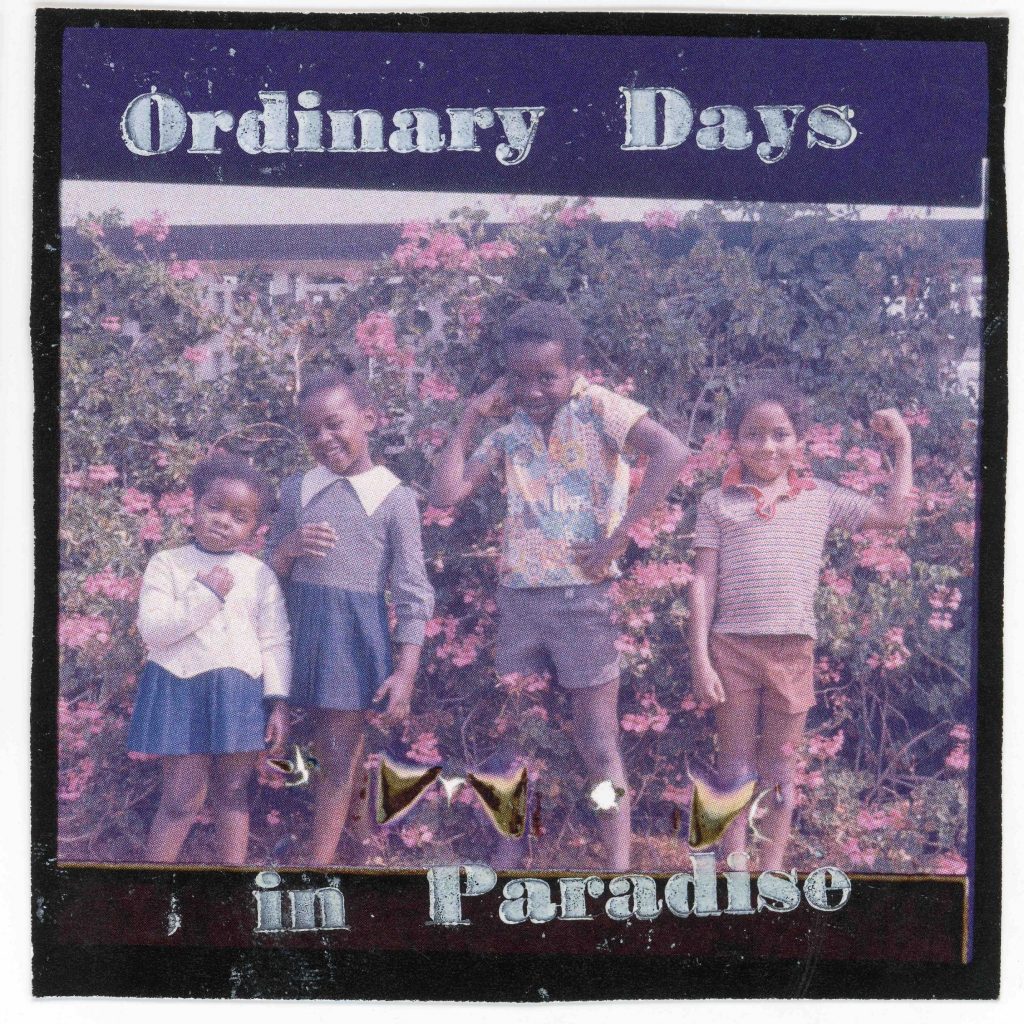
All this intensive activity in the space of two short weeks afforded a fraction of the RCS collection to experience a transtemporality of sorts. Its world met with ours and entered a different dimension through portals of print, film, photography and now, writing. Our fellowship made me wonder, that perhaps the UL basement does not extend to the end of the world. Rather, it could return back to itself in litany-loop of its own – one that allows protocol to transcend into portals. For what is all that weight for, if not to distribute?
All images supplied by Sana Ginwalla and Kerstin Hacker.
[1] Phrase borrowed from text in card catalogues: A treasure of darkness: an idyll of African child life by Shaw. M, 1936 under ‘Northern Rhodesia – Education’.

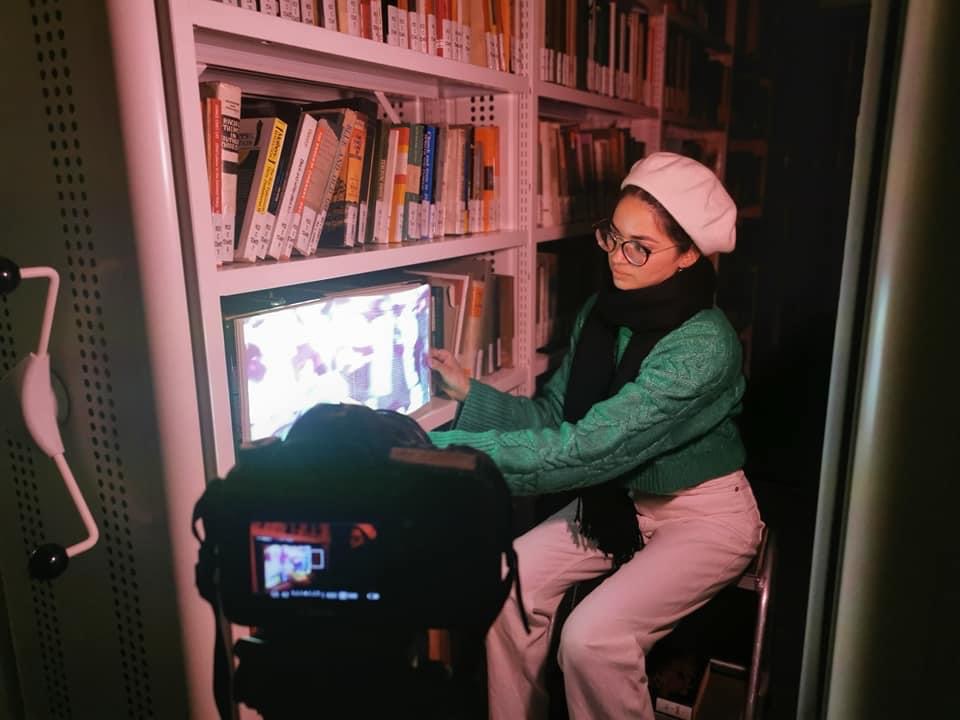
Wow. A brave attempt. I wonder if such deeply varefully nuried history will ever be written or rewritten decolonialized, it’s sins and victories, revealed!
This so beautifully written. I feel like I’m walking through the archives with Sana. Great work 🙌🏾